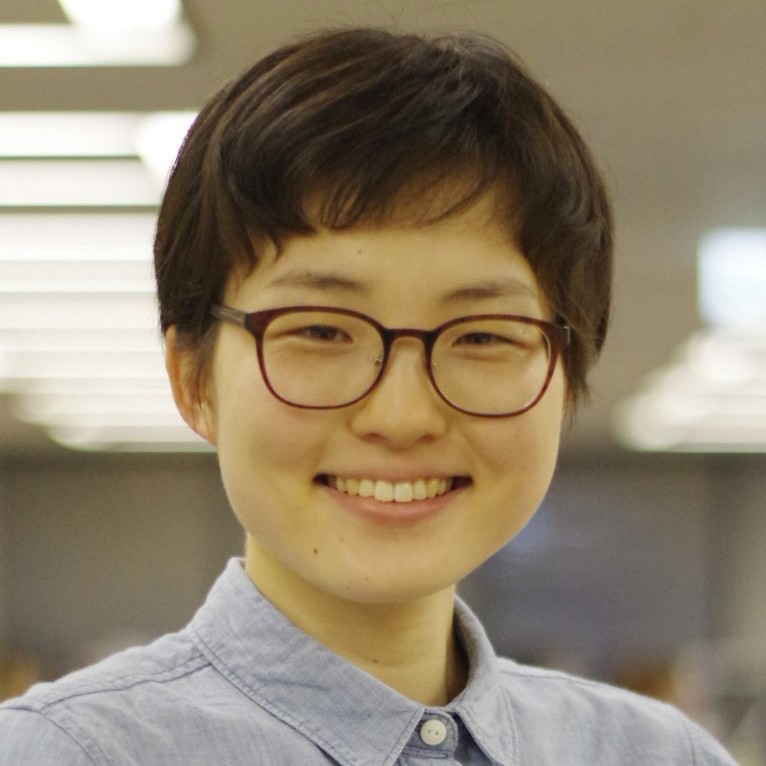Lisa Takagi
Reporter & Editor
Master of Journalism, 2017
Few people talk about the responsibility of maintaining freedom of speech and a society that values freedom of speech ...
As a journalist covering Japan’s pharmaceutical industry, Lisa Takagi, BA’16, MJ’17, is daily reminded of the value of data, along with the importance of fact-based journalism and free speech. But putting those lessons into practice has been a hard-won journey, one that involved a natural disaster, a move across the world and two intense years of study at the University of King’s College.
In March 2011, Lisa was about to start a master’s degree in art history from Tokyo University of the Arts. Then, disaster struck. A massive earthquake and tsunami rocked Tōhoku, a region in northeast Japan, killing nearly 20,000. The subsequent electrical grid failure caused a nuclear power plant in nearby Fukushima to explode, plunging the country into further mayhem.
“Anyone in Japan [faced] the importance of journalism [at that time], because everyone was in confusion,” Lisa says. “We basically didn’t know what was going on until the some TV stations, including NHK and other media like CNN and BBC captured the explosion of the plant live…That was when I seriously got interested in journalism.” Soon she started writing content part-time for a Tokyo business website.
As Japan began to rebuild in the wake of disaster, Lisa started researching journalism programs abroad and ended up at a university fair at the Canadian Embassy, where she learned about the one-year Bachelor of Journalism program at King’s. Thanks to her art history studies, Lisa spoke several languages—including English and French—but she’d never been to North America. Still, she decided to pay a visit to the campus. “People tried to convince me not to do it because I did not know what the winter was like in Nova Scotia. But I wanted to see the school with my own eyes. It was freezing cold! But I enjoyed it. Everybody was so kind, so I decided to apply.”
Lisa’s hands-on education started almost immediately after beginning classes at King’s. She remembers being shocked when a professor handed her a portable voice recorder, requesting she ask a stranger downtown their thoughts on the 2016 federal election, a common rite of passage in journalism school known as a “streeter.”
“How am I supposed to talk to a stranger and ask political questions?” She remembers thinking. “That was my first surprise.” Her second surprise was how creatively exhausting the constant search for story ideas could be. Lisa had long known that was a critical skill for journalists, but putting it into practice week after week tested her tenacity.
But Lisa persevered with the support of her professors and fellow journalism students who formed a tight-knit community. “Nobody judged each other because we had spent so much time together, sometimes until midnight in a classroom, and sometimes in our pajamas.”
Before long she was interning at CTV News in Halifax and writing for The Signal, the digital media outlet produced by King’s journalism students. After completing the one-year BJ, she was accepted into the Master of Journalism program in the New Ventures stream, which teaches advanced journalism skills combined with business classes in media entrepreneurship.
Today, Lisa is back in Japan, working as a managing editor for Scrip/Pink Sheet, a global media outlet that covers the pharmaceutical industry. “My current boss encouraged me to do it and he told me, ‘you have to…research a lot to report for the pharmaceutical business.’ But that was something I did every single day at King’s—I did tons of research.”
Lisa uses the skills she learned in the MJ on a regular basis at work—from hosting and producing a podcast to using data journalism and multimedia in her storytelling and mentoring other colleagues. Her time at King’s has also made her think differently about the shifting landscape of journalism and the importance of protecting free speech.
“Few people talk about the responsibility of maintaining freedom of speech and a society that values freedom of speech,” she says. “Because…we are living [under] capitalism, valuing freedom of speech and providing the value of stories and insights and data to people…is very important to keep journalism alive. That’s one of the important teachings I learned [at King’s.]”
